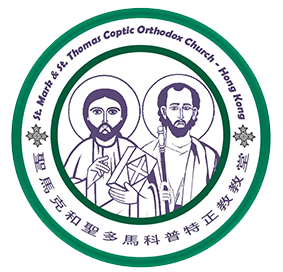He was born in Cappadocia on 280 AD to a pious and wealthy parents from a noble family. His father, Anastasius, was the governor of Melitene in Cappadocia, and his mother, Theophistis or Theognosta, was the daughter of the governor of Lydda in Palestine. His father was faithful to the king that’s why the king loved him so much and appointed him among his entourage, accompanying him on his journeys and expeditions. But when his faith in the Lord Jesus Christ was discovered, he was ordered to be beheaded. St. Georgios was only 14 then.
When Anastasius was martyred, Theophistis took her children: Georgios, Kasia, and Madrona, and departed to her hometown, Diospolis, in Palestine.
Prince Yustus took over after Anastasius. He was a God-fearing man who loved the Lord Jesus Christ, so he showed kindness to the family. He took it upon himself to take young Georgios under his wing and make him a splendid soldier.
Quickly, Georgios excelled as a soldier and gained renown throughout Palestine, becoming the leader of a large group of one thousand soldiers.
Prince Yustus sent him to the king with a letter of recommendation, requesting to grant Georgios the rank of “prince.” The king agreed. Georgios was named “Georgios the Roman” and appointed as a prince to lead five thousand soldiers. The king also presented him with a splendid horse of a rare breed as a token of his satisfaction. Georgios became a commander and organizer of the army at the age of twenty, then his mother passed away.
Georgios heard that the king had convened seventy governors and issued orders for the complete eradication of Christianity and the demolition of churches. Georgios prepared himself to face persecution, sold everything he had inherited from his parents, including his household items and clothes, and gave the proceeds to the poor. When the decree was issued, the saint seized it and publicly tore it apart amidst the crowds in a public place, after distributing all his belongings to the poor, freeing slaves, and preparing himself for martyrdom with joy.
He was brought before the king, who tried to persuade him with many promises of great rewards, but he remained steadfast. When the king failed to tempt him, he subjected him to severe torture for seven years.
Yet, the hand of God supported him, gaining many souls for the true faith of the Lord Jesus Christ, during his sufferings. He died three times, and the Lord revived him to glorify Himself through him, until he was finally martyred on the fourth time. He experienced heavenly visions amidst his pains, which strengthened and aided him. The king feared a revolution against him as the works of God performed through the saint became widely known. Therefore, he ordered his beheading, which occurred on the 23rd of the Coptic month of Baramouda.
May his prayers be with us, and may our Lord always have the glory. Amen






